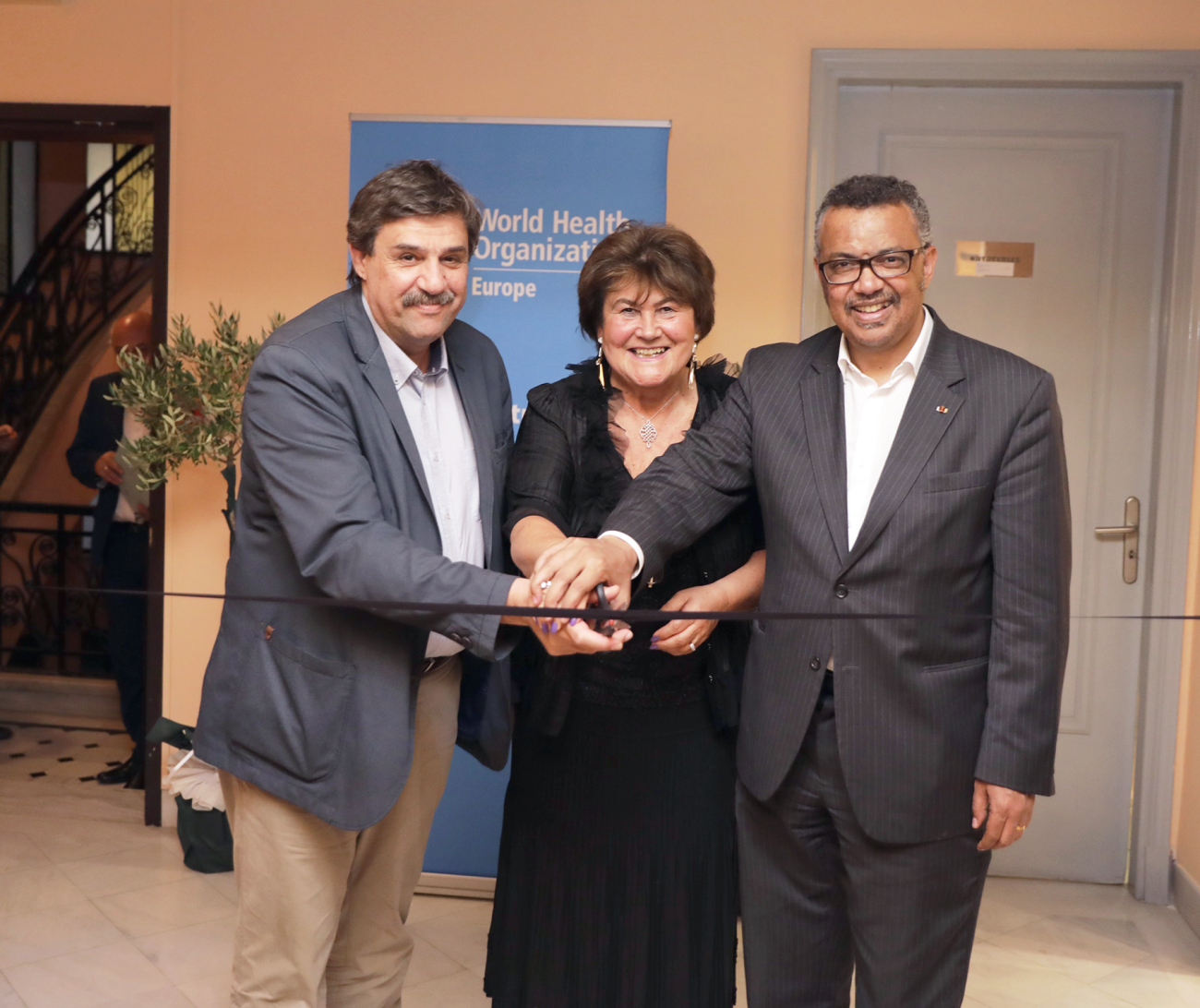Nearly 100 PHC units, able to each serve 10,000 people, have opened in Greece in the past year. One patient describes it as a "major breakthrough in health."
Greece’s health system was deeply affected by the financial crisis, with a direct impact on access to health services, quality of care and financial protection.
Vast improvement of access to affordable health services nationwide, and there is a shift of focus from treatment to prevention.
WHO stood ‘shoulder-to-shoulder’ with the Greek Ministry of Health, working at first from the Regional Office to support an EU-funded PHC project in Greece. WHO has now opened a Country Office in Athens, and supported the roll-out of this nationwide PHC effort.
I am 80 and I live in Metamorfosi, Attica. TOMYs are clearly a big, big, big service and a major breakthrough in health.I found a setting that was very friendly and pleasant. At the TOMY, I definitely don’t pay for anything. From my place, the TOMY is ten minutes by car. Better health for all!
Standing shoulder-toshoulder with the Ministry of Health, we have made significant efforts that will continue to contribute to improving the health of the Greek people, including the most vulnerable.
The units are key elements of the ewly designed primary health care system and are the first point of contact and the main coordinator of care for people in the area.
Here, multidisciplinary teams of general practitioners/family doctors, paediatricians, nurses, health visitors and social workers provide health care for people in a continuous manner, looking at disease prevention, health promotion, diagnosis, treatment, monitoring and care. The new units will also have clear referral mechanisms. This is a major change from the otherwise fragmented network of different public and private health providers, primarily specialists, providing care upon request and with little coordination. The impact is keenly felt

Collaboration reaps rewards
Greece’s health system was deeply affected by the financial crisis, which had a direct impact on access to health services, quality of care and financial protection. Pressure from the crisis revealed long-term problems in areas such as health governance and primary health care provision.
The Greek health authorities, in close collaboration with WHO Europe and other stakeholders, analysed the progress of health reform in Greece and made recommendations for its future direction and improvement.
Close collaboration between WHO and the Greek Ministry of Health began five years ago in 2013 when WHO Europe set up a Health Reform Support Programme and a Project Office, with financial support from the European Commission. This year a WHO Country Office opened in Athens.
In 2016, the Greek Government developed the Primary Health Care Roll-out plan and implementation
started after the new law on PHC was passed in August 2017. With much celebration, the very first TOMY opened in Thessaloniki, Evosmos in December 2017 and now there are currently 98 units in operation. Each unit has a capacity to serve approximately 10 000 people.
This is a reform that aims to shift the focus from treatment to prevention. It is an evidencebased response to the health systems crisis and to societal demand for the elimination of health inequalities,” said Minister of Health Andreas Xanthos.
Dr Hans Kluge, Director of the Division of Health Systems and Public Health at WHO Europe, congratulated the Greek authorities and the communities.
Real fundamental health reforms are possible in Greece and they are happening now,
not in the far future”, he said.
